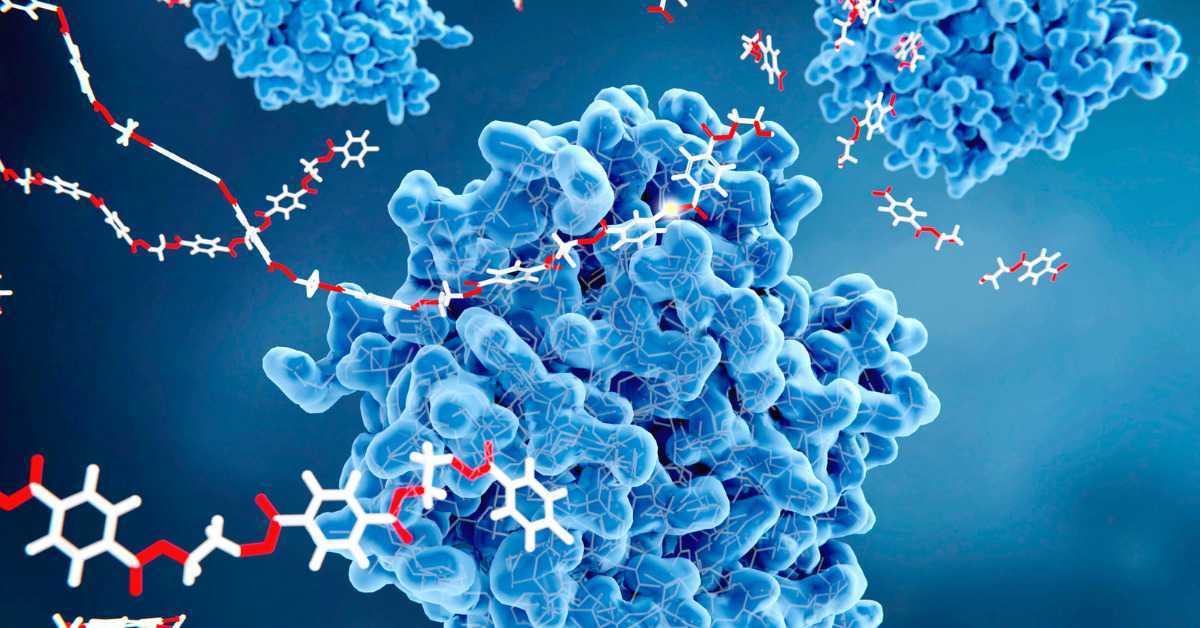Some dietary supplements can help with chronic health disorders or be used in conjunction with regular drugs to alleviate symptoms. Serrapeptase is a supplement made from the enzyme Serrapeptase, which is obtained from silkworms. Continue reading to learn more about Serrapeptase Benefits.


What is Serrapeptase?
Serrapeptase is a silkworm-derived enzyme. The worms’ Serratia bacteria create an enzyme that dissolves the silkworm’s cocoon, allowing it to emerge as a moth. In Japan, the chemical was first used as an anti-inflammatory in the 1960s. It has since become a common drug, both on its alone and in combination with other drugs.
Many migraine and tension headache treatments, as well as fibromyalgia, arthritis, carpal tunnel syndrome, and osteoporosis medications, contain it. All of these disorders are accompanied by generalised pain, edoema, and inflammation. It can also be used to minimise edoema after surgery and to treat breast engorgement and chronic sinusitis. Serrapeptase helps certain people with chronic bronchitis, TB, and asthma breathe easier because it breaks down protein.
Serrapeptase Benefits
- Serrapeptase appears to have no effect on reducing swelling or inflammation, according to some studies. Other rat trials, on the other hand, found that it did lower inflammation. Serrapeptase, in combination with ibuprofen or acetaminophen, was found to lessen edoema and inflammation in persons who had their molars removed in several Japanese trials (more than with the over-the-counter painkillers alone).
- Serrapeptase was found to be beneficial at thinning mucus and reducing swelling in patients with chronic sinusitis (chronic sinus inflammation caused by bacterial infections).
- In breast engorgement studies, individuals who took serrapeptase saw a considerable improvement compared to those who received a placebo. Breast engorgement is most prevalent among nursing mothers, but it can also happen to those who are pregnant or have PMS.
- Serrapeptase can be passed to the baby either in utero through the placenta or through breast milk, however no studies have shown this. As a result, if you’re pregnant or breastfeeding, you should consult your doctor before taking serrapeptase.
- The majority of investigations on serrapeptase as a mucolytic agent have found that it thins mucus and makes coughing easier. People with chronic sinus or lung diseases may find it difficult to breathe due to thicker mucus. Mucus traps bacteria, and thicker mucus can keep bacteria in the body for longer periods of time, increasing the risk of infection.
- Serrapeptase appears to provide potential benefits for persons with breast enlargement, various types of inflammation, such as sinusitis, and people who require thinner mucus.
- Serrapeptase appears to aid in the absorption of antibiotics, according to additional research. When people with bone or joint infections or certain lung diseases took the supplement, they were able to absorb antibiotics at twice the normal rate.
- While research on the health advantages of serrapeptase are mixed, some evidence suggests that the drug can have anti-inflammatory properties when combined with certain medications and/or antibiotics.


Click here to book an Online Appointment with the Best Dietitians in Lahore only through Marham.
Who may Benefit from Serrapeptase?
Serrapeptase’s benefits vary greatly from person to person, as they do with many nutrients. Some people may find that this substance aids in the absorption of medicines, which is beneficial for those with a joint or bone infection. Others may find it easier to breathe or have less pain and swelling in their sinuses as a result of taking it. Serrapeptase may assist with inflammation and arthritis, as well as tension and migraine headaches, but results may vary.
More research is needed to see how consistently the chemical functions in the body. There isn’t enough information on this supplement’s long-term effects.If you prefer alternative pharmaceuticals or natural remedies for your medical condition, or if your current painkillers and anti-inflammatory meds aren’t working as well as you’d like, you may want to discuss serrapeptase with your doctor. If you’re currently receiving therapy for a chronic condition, this could be a treatment option to discuss with your doctor.
Serrapeptase Side Effects
Serrapeptase does not cause negative effects in everyone who takes it. People with underlying medical disorders had pneumonia and haemorrhages in a small number of cases. Serrapeptase also has the following adverse effects:
- Joint pain
- Muscle soreness
- Skin reactions like an itchy rash
- Cough
- Blood clotting disruption
- Nausea and stomach pain
- Poor appetite and weight loss
It’s crucial to discuss serrapeptase with your doctor, especially if you’re planning to use it in conjunction with other medications. Certain prescription and over-the-counter drugs may interact with the supplement, and certain brands may have interactions with the supplement that others do not. If you experience any of these negative effects, stop taking serrapeptase right away and notify your doctor.
Click here to book an Online Appointment with the Best Dietitians in Lahore only through Marham.
Is Serrapeptase a Safe Supplement?
There is no such thing as a totally safe supplement or drug. Serrapeptase’s benefits and safety have not been investigated by the FDA. It is illegal to sell a supplement as a treatment or cure for a specific ailment, or as a way to relieve disease symptoms. It is not required to fulfil the same government safety criteria as prescription and over-the-counter drugs because it is categorised as a supplement. Furthermore, there are only a few investigations on the substance’s efficacy. Serrapeptase was found to be relatively safe in short-term clinical trials, with just a few unusual adverse effects involving difficulties with the patients’ primary medical condition.


Wrapping Up
Serrapeptase’s analgesic and anti-inflammatory effects may be useful. It’s utilised as a mucolytic agent, which thins mucus and lowers sinus pressure. It’s also recommended as a lung disease supplement. Despite its popularity in Japan and Europe as a supplement and component, there isn’t enough evidence from clinical research to back up claims of serrapeptase’s efficacy. Before using any dietary supplement, you should extensively investigate the substance’s effects and consult with your health care professional. Serrapeptase has a few major side effects, but there are many common ones, and there isn’t enough data to assess its overall usefulness.
Consult with a Nutritionist to discuss more ways to do weight loss through taking Serrapeptase. Click here to book an appointment through the Marham app today!
Can’t Find The App
| Android | IOS |
|---|---|
  |
  |
FAQ’s
1. How long does it take for serrapeptase to work?
Serrapeptase, when taken on a regular basis, can dissolve or eat cysts or fibroids. The enzyme should be taken at a dose of 10 mg three times a day to work on fibroids. After 2-weeks, the best outcomes can be visible, and the dosage can last up to 4-weeks.
2. How long should you take serrapeptase for?
Serrapeptase is usually taken by adults in doses of 10 mg three times daily (range: 15 to 60 mg/day) two hours after meals. Serrapeptase has been used as an anti-inflammatory drug for 1 to 2 weeks and as a mucolytic agent for up to 4 weeks.
3. When is the best time to take serrapeptase?
It should be taken on an empty stomach, at least 30 minutes before eating, or two hours after a meal. To be absorbed, serrapeptase must be enteric-coated. Otherwise, the enzyme will be destroyed in your stomach’s acidic environment.

